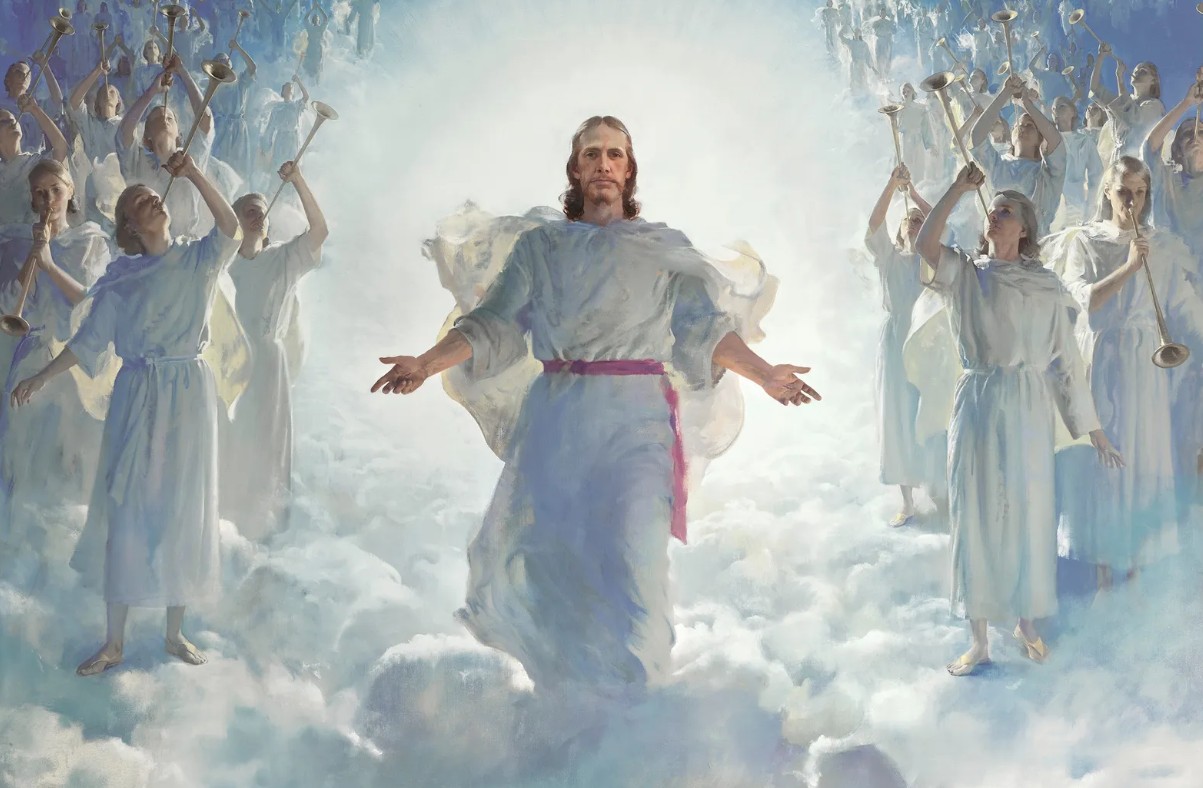By President Jeffery R. Holland
Acting President of the Quorum of the Twelve Apostles
Consider this scene from the last week of Jesus’s mortal life. A multitude had gathered, including Roman soldiers armed with staves and strapped with swords. Led by officers from the chief priests who had torches in hand, this earnest company was not off to conquer a city. Tonight they were looking for only one man, a man not known to carry a weapon, receive military training, or engage in physical combat at any time in His entire life.
As the soldiers approached, Jesus, in an effort to protect His disciples, stepped forth and said, “Whom seek ye?” They replied, “Jesus of Nazareth.” Jesus said, “I am he. … As soon … as he had said unto them, I am he, they went backward, and fell to the ground.”
To me, that is one of the most stirring lines in all of scripture. Among other things, it tells me straightforwardly that just being in the presence of the Son of God—the great Jehovah of the Old Testament and Good Shepherd of the New, who bears no weapons of any kind—that just hearing the voice of this Refuge from the Storm, this Prince of Peace, is enough to send antagonists stumbling into retreat, piling them in a jumble, making the whole group wish they had been assigned kitchen duty that night.
Just a few days earlier, when He had entered the city triumphantly, “all the city was moved,” the scripture says, asking, “Who is this?” I can only imagine that “Who is this?” is the question those muddled soldiers were now asking!
The answer to that question could not have been in His looks, for Isaiah had prophesied some seven centuries earlier that “he hath no form nor comeliness; and when we shall see him, there is no beauty that we should desire him.” It certainly wasn’t in His polished wardrobe or His great personal wealth, of which He had neither. It could not be from any professional training in the local synagogues because we have no evidence that He ever studied at any of them, though even in His youth He could confound superbly prepared scribes and lawyers, astonishing them with His doctrine “as one having authority.”
From that teaching in the temple to His triumphant entry into Jerusalem and this final, unjustifiable arrest, Jesus was routinely placed in difficult, often devious situations in which He was always triumphant—victories for which we have no explanation except divine DNA.
Yet down through history many have simplified, even trivialized our image of Him and His witness of who He was. They have reduced His righteousness to mere prudishness, His justice to mere anger, His mercy to mere permissiveness. We must not be guilty of such simplistic versions of Him that conveniently ignore teachings we find uncomfortable. This “dumbing down” has been true even regarding His ultimate defining virtue, His love.
During His mortal mission, Jesus taught that there were two great commandments. They have been taught in this conference and will forever be taught: “Love the Lord thy God [and] love thy neighbour as thyself.” If we are to follow the Savior faithfully in these two crucial and inextricably linked rules, we ought to hold firmly to what He actually said. And what He actually said was, “If ye love me, keep my commandments.” On that same evening, He said we were to “love one another; as I have loved you.”
In those scriptures, those qualifying phrases defining true, Christlike love—sometimes referred to as charity—are absolutely essential.
https://www.churchofjesuschrist.org/study/general-conference/2024/10/41holland?lang=eng
Sacrament Meeting Program
Presiding: Bishop St. Felix
Conducting: Bisohp St. Felix
Opening Hymn: CS 100 – Baptism
Invocation: By Invitation
Sacrament Hymn: #186 – Again We Meet Around the Board
Youth Program
Closing Hymn: CS 95 – I Love to See the Temple
Benediction: By Invitation

Comments are closed.